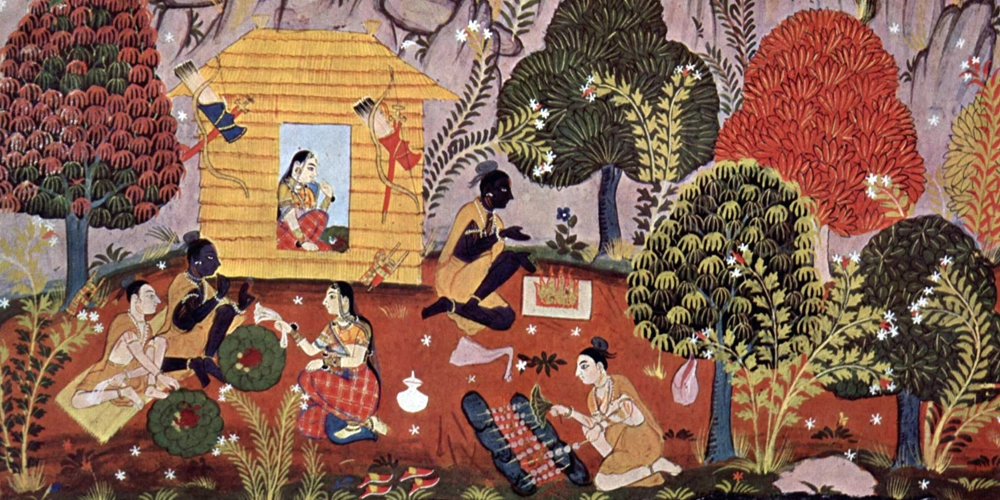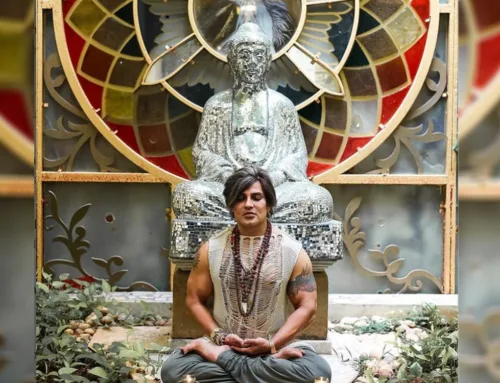Fairytales are generally the first thing that springs to mind when you think of myths and folklore. Adults with logical brains frequently view stories as, at best, entertaining and, at worst, inaccurate, illogical, and immature. While discussing the wisdom of myth and folklore, the image of his grandmother, Mrs Gopi Birla, comes to the mind of Mr Yash Birla. A large part of the childhood memories of Mr Yash Birla includes listening to a lot of stories from his grandmother.
In our modern, technologically evolved civilization, myths, folktales, and traditions are being lost more and more, believes Yash Birla. However, there is much knowledge to be learned from the ancient tales of our ancestors, which are filled with tales of sinister mysteries, passionate adventures, and valiant heroes battling both inner and exterior monsters.
But why is it crucial to preserve these historic tales in the present day? What lessons still apply to these tales? And what can the wisdom of myth and folklore teach us about how to act in modern society through the use of archetypes? Let’s first examine what constitutes myths and folklore tales.
What are myths?
Yash Birla explains that a myth is described as a classic tale that attempts to explain big life questions including how the universe was created, the nature of life, death, and the seasons of day and night. Before rational answers to these crucial concerns were discovered, myths and other stories were frequently used to explain the nature of reality and paranormal occurrences. Every ancient culture contains myths. Every tribe has a unique account of how the universe came into existence. Heroes and gods were frequently shown in tales to represent good and bad behaviour.
But mythology is much more than the story of a valiant adventurer. Myths investigate archetypal symbols and ideas. An archetype is a recurrent theme, model, or symbol that represents a certain idealised behaviour that others might emulate and turn to for guidance. Myth serves as an accepted explanation among those who share it. These myths were real to our ancestors; they represented a way of life and formed the fundamental cornerstone upon which existence was constructed, says Yash Birla.
Folktales are a collection of made-up stories about people or animals, in contrast to myths, which are frequently sacrosanct and centre on the beginnings of a people or the planet. Large portions of folklore are based on superstitious ideas. Folktales, in contrast to myths, which focus more on life’s major questions, show how the main character handles ordinary life’s ups and downs. A crisis or conflict may be present in the story, which must be resolved in order to bring about equilibrium. Every folktale contains a significant moral or core message, usually centred on how to deal with life and death.
What are folklore tales?
Unlike myths, which are typically sacred and focus on the origins of a people or planet, folktales are a collection of made-up stories about people or animals. Superstitious beliefs provide the basis of a sizable amount of folklore. Folktales, as opposed to myths, which place more emphasis on life’s big questions, depict how the main character deals with the ups and downs of everyday life. The story may contain a crisis or conflict that needs to be resolved in order to restore equilibrium. Every folktale has an important moral or central message, which is typically focused on how to handle life and death.

Why are these ancient stories still important in our society today?
Myths and folktales have declined in popularity and have been suppressed in many civilizations as a result of the development of digital media, television, and the internet.
When science already has the answers to (most) important issues regarding life, one could wonder what use these ancient tales are today. We, most definitely, no longer require myths to explain how the world came to be, and the majority of people do not believe that a hurricane or earthquake is the result of the anger of the gods. Consequently, why should we prevent myths and legends from vanishing? There are a few significant reasons for that, though.
Cultural preservation and collective identity
The most popular and rational justification for why it is important to preserve myths, folktales, legends, and fairytales is that because they are a part of our history and culture, they are essential to understanding our past. However, myths are significant for comprehending our present as well as our past, believes Yash Birla.
Myths and tales establish a strong and intimate connection between ourselves and our ancestors that transcends time and location. We can see into the minds and actions of our ancestors’ daily lives by reading or listening to these tales. We can see that they shared many of our current worries, desires, and demands. Stories of unrequited love, envious husbands, and women seeking themselves in the world show how similar we are to our predecessors. Stories help us better grasp things and give history a more concrete form. In the last 2000 years, humanity may have made significant advancements in science, technology, and medicine, but at our heart, we are the same as we were then, with all of the same human emotions and issues.
Myths reconnect us to our true selves
Additionally, these tales help us remember how we are a part of the larger energy and deeper soul of the earth. They reconnect us with our hearts and our innermost selves, taking us back to our fundamental selves. A deep, primordial, and ancient part of us is awakened by hearing, telling, and remembering these old tales. Stories speak to our hearts while facts speak to our heads. We can relate to them and see that we all have something in common. This is now more crucial than ever in an era of severe political conflicts and climate change.
To prove that we are more than simply the person working a soul-crushing 9–5 job or the man fighting to make ends meet, we need stories to keep us alive. In a rational society with data analysis and algorithms for everything, stories and old legends evoke awe and magic, says Yash Birla. He further adds that they cause us to reevaluate our limiting belief systems and behaviour systems by opening our hearts to curiosity and deeper feelings.






Leave A Comment